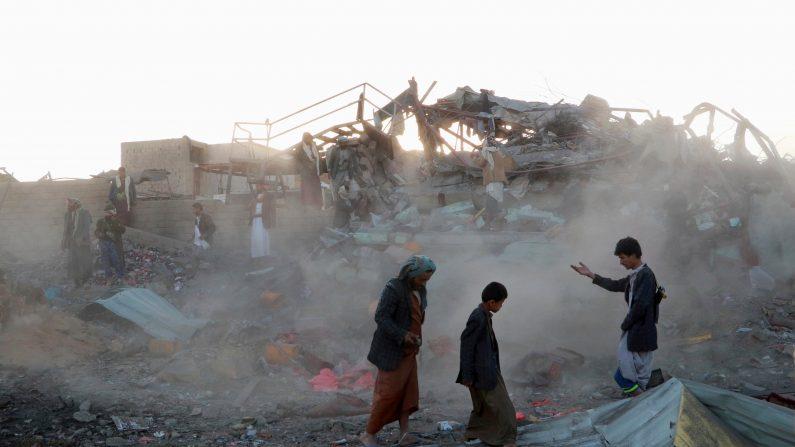Saudi Arabia launched military strikes against Yemen’s defense ministry in Sanaa, the capital city, on Friday, the AFP news agency reported.
“There were two to three strikes on the Ministry of Defense,” local journalist Hassain Abukhaiti told Russian state-backed RT. “One of the missiles hit a house“ near the building, he said. ”A family was living there,“ the journalist added. ”The house has been destroyed. It is very likely that the entire family was killed.”

